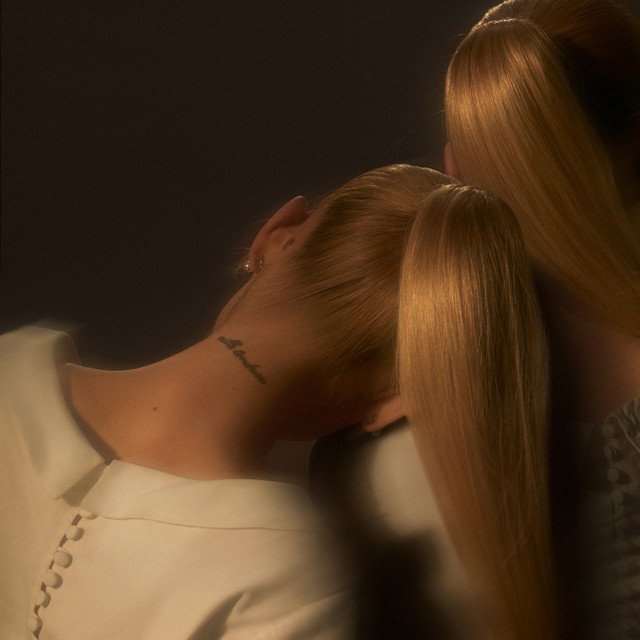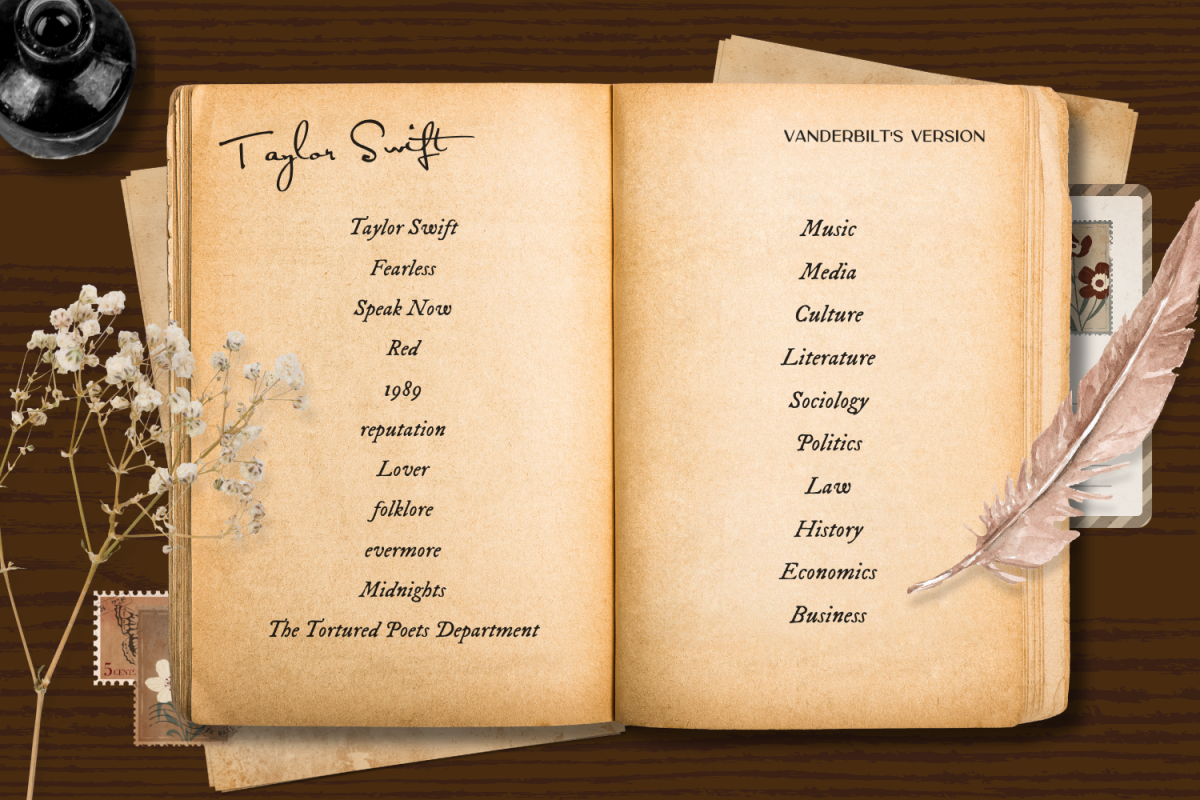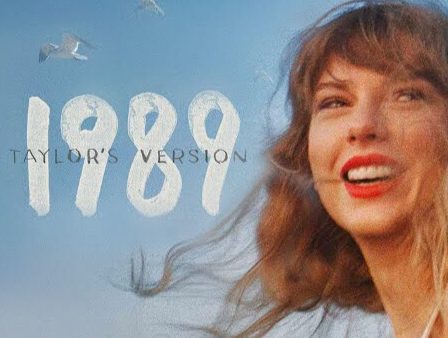The 11th studio album from musical mastermind Taylor Swift has arrived. “The Tortured Poets Department” closes the book of some of the greatest loves of her life, touching on themes of self-sabotage, love and understanding. While for the past few years, Swift has taken us across “The Eras,” re-recorded past albums, released a movie and dominated the global music scene, in “The Tortured Poets Department,” she takes a moment to slow down. The album is, for Swift, a purifying way to reflect on and move past a “tortured” time in her life. For listeners, it is a window into Swift’s mind for the past few years and the perfect record to cry or sing along to. We reviewed all 31 songs to provide a glimpse into “The Tortured Poets Department” as you listen along.
“The Tortured Poets Department”
“Fortnight (ft. Post Malone)” — Jorie Fawcett, Editor-in-Chief
Whether it be a movie, book or even song, any form of media needs to hook me from the beginning or I am lost. Unfortunately, the opening song from “TTPD” lost me and didn’t quite make a good first impression. This is nothing against the flawless vocals from Swift and the iconic Post Malone, but I tracked too many similarities to “Midnights.” That being said, the melody was catchy and the vocals were smooth as Swift sang about a lover ruining her life. I can see “Fortnight,” and the album as a whole, growing on me slowly just as “reputation” did.
“The Tortured Poets Department” — Rachel Marlowe, Staff Writer
This titular track accentuates longing for someone; “Who’s going to know you like me?” Swift sings. It reflects a hazy fantasy with hints of paralyzing anxiety over a new relationship. Swift writes more history and name-drops than ever before into this song. She names famous poet Dylan Thomas, another writer with a troubled life, and legendary singer-songwriter Patti Smith, who has defended Swift’s fame on several occasions. The two both spent time at the famous Manhattan enclave, The Chelsea Hotel, home to numerous artists over the years. Swift differentiates herself from these notable poets, singing “We’re modern idiots.” What stunned me the most was the lyric “At dinner, you take my ring finger off my middle finger / And put it on the one people put wedding rings on, and that’s the closest I’ve come / To my heart exploding.” Our hearts ache alongside Swift’s.
“My Boy Only Breaks His Favorite Toys” — Abby Hoelscher, Deputy Photography Director
This song caught me off guard as an enthusiast of Swift’s usual lyrical genius; however, it quickly rose to be a favorite as I came to understand the significance of its simplicity. Swift infantilizes her ex by referring to him as just a boy playing with his toys, and then furthers this elementary theme by referring to herself as “queen of sand castles he destroys.” With an upbeat melody, this song is sure to get girls of all ages to hold their heads high and take over the world with a Barbie doll in hand.
“Down Bad” — Marques Watson, Deputy Life Editor
Opening with her gorgeous yet rarely-heard upper register, on “Down Bad” Swift longs for a love that wasn’t to be. While she dons a more mature and reflective persona during the song’s verses, “Everything comes out teenage petulance” during the chorus. Layered over a mesmerizingly catchy snare beat, Swift perfectly encapsulates the feeling of being so enamored or “down bad” for someone that you refuse to move on and begin ignoring all their red flags.
“So Long, London” — Kate Connell, Managing Editor
Swift’s infamous and vulnerable track fives have never disappointed me, and I can confidently say they still haven’t. “So Long, London” is the ultimate farewell letter, starting out with a light, beautiful entrance that reminds me vaguely of church bells. Almost like telling a story, Swift writes about carrying the weight of a difficult relationship she’s trying to revive, with lyrics like “My spine split from carrying us up the hill / Wet through my clothes, weary bones caught the chill.” She follows later by saying, “I stopped CPR, after all, it’s no use,” ultimately giving up after feeling that she’s given it her all. Rumored to be about her ex after six years, Joe Alwyn, this song feels gut-wrenching and empathetic to a difficult situation with no obvious solution. Like many of her other track fives, this lyrical story sets the tone for the themes and instrumentals seen throughout the rest of the album.
“But Daddy I Love Him” — Chloe Whalen, Deputy Life Editor
As Swift has her emotional track fives, her following songs on each album typically take a different tonal direction; “But Daddy I Love Him” is no different. This song reminded me of a grown-up counterpart to her iconic “Love Story” from “Fearless” in its themes and lyrics. She sings about forsaking being a “dutiful daughter” to run away with her lover, who brings chaos and vibrance to her life. The lyric in the bridge “God save the most judgemental creeps / Who say they want what’s best for me” seems to be pointed at so-called fans who are disapproving of her relationships. I was pleased to hear that this song has a happy ending, which is a rarity on this album.
“Fresh Out the Slammer” — Fawcett
This song gave me the combination “reputation” and “evermore” vibes I have been waiting for since the release of the sister albums in 2020. “Fresh Out the Slammer” is in reference to her short-lived relationship with Matty Healy as well as long-term relationship with Alwyn. The line “in the shade of how he was feeling,” is in reference to the years that Swift spent out of the eyes of paparazzi with Alwyn, but is now “gonna be alright” as she redefines her life and relationship. I can see this song being the next “Getaway Car.”
Florida!!! (ft. Florence + The Machine) — Claire Gatlin, Life Editor
“Florida!!!” is a drug; it’s the feeling of recklessly chasing something to escape the reality of your life. While some speculate that the song references Swift’s tour stop in Tampa, Fla., following the breakup, the song also more broadly alludes to packing up and leaving your life behind to go to a place where no one knows you. This building, euphoric song features a beautiful mix of Florence Welch and Swift’s vocals and is going to be a fun one at live shows. It’s also an ego boost for Floridians.
“Guilty as Sin?” — Whalen
With religious allusions and references to those who disapprove of her every move, this track sounded lyrically like “reputation” with the production reminiscent of her lighter albums. She sings about being “guilty as sin” for the things she’s never even done. She calls out the expectations others set for her and sings about how she’s doing it anyway.
“Who’s Afraid of Little Old Me?” — Pragya Shah, Deputy Opinion Editor
In a haunting track 10, Swift repeatedly questions the listener “who’s afraid of little old me?” This “mad woman”-esque track recounts the intense public scrutiny and vicious personal attacks that seem to follow Swift around. A constant, angry drum backing builds to a crescendo at the end of the bridge, a reflection of the way anger multiplies when vocalized. Swift invokes the circus act metaphor from “mirrorball”; this time, singing from the perspective of her circus masters, “‘Don’t you worry, folks, we took out all her teeth.’” Swift is a vicious, but caged lion — she is the main act, but that very fact subjects her to a leash much tighter than anyone else’s. In key emphatic moments, Swift reminds us that she has metamorphosed from the tame, gentle young girl who first became victim to intense smear campaigns. She is a force of nature, no longer confined to a cage, and you should be afraid.
“I Can Fix Him (No Really I Can)” — Chloe Kim, Staff Writer and Photographer
Swift delves into the delusional moments of ignoring red flags, driven by the false belief of “I can fix him.” Mystical, sorrowful instrumentals introduce track 11 as Swift describes this dangerous man and the warnings issued by those around her. Throughout the track, she repeats “I can fix him, no really I can,” almost as if trying to convince herself that the man secretly hides a halo. My heart breaks for her as she comes to the realization that “maybe I can’t.”
“loml” — Connell
When the titles of the tracks first came out, I was excited at the prospect of a new love song that I thought very obviously was an acronym for “love of my life.” So, when I heard the devastatingly sad piano at the beginning of the track, I was a mixture of confused and intrigued. Ultimately, the track describes a relationship nearing its end but not fully there. In the song, Swift reflects on the possibility that the love she thought was real was actually fake, with lyrics like “Who’s gonna tell me the truth, when you blew in with the winds of fate / And told me I reformed you? / When your impressionist paintings of Heaven turned out to be fake.” Finally, the last line tells us the real meaning behind the acronym — “You’re the loss of my life.” Although the most vulnerable song is usually reserved for track five, “loml” has taken the number one spot for this album as the most devastating love song.
“I Can Do It with a Broken Heart” — Zoe Abel, Opinion Editor
It was impossible to exist last year without seeing a glittery, grinning Taylor Swift plastered across the internet singing and dancing her way across the world with her record-breaking Eras Tour. Enter “I Can Do It With a Broken Heart,” the 13th track on “The Tortured Poets Department.” Swift provides a potent and devastating behind-the-scenes exploration of “the show must go on,” unraveling the anguish and despair she was hiding while in the spotlight during her very public, global tour. Swift is an expert at trojan horse songs and this is no exception; devastating lyrics that hide within an upbeat, pop-synth melody. This entire album felt like an ode to falling apart and this song is a perfect representation of being “on” for the world while falling to pieces in private. For those of us who have ever ugly-cried on our birthdays, crumbled under the pressure of expectations or had to keep pushing when it felt impossible to get out of bed — this is our anthem.
“The Smallest Man Who Ever Lived” — Abel
In a society that incessantly champions the virtues of female passivity and docility, anger emerges as a rebellious anomaly. Enter track 14: “The Smallest Man Who Ever Lived,” the most satisfying, seething breakup anthem since “All Too Well.” The song begins wistful and acoustic before exploding into something far angrier and more aggressive. She’s been fooled by someone who promised her the world and she does not hold back in her brutal takedown, singing “You didn’t measure up by any measure of a man.” For any woman, but especially bubbly-love-song-glitter-icon Taylor Swift, anger is labeled as unbecoming and uncomfortable. But she holds nothing back here in her angriest breakup ballad — and she’s not apologizing for any of it.
“The Alchemy” — Hoelscher
The Oxford English Dictionary defines this term — alchemy — as “the medieval forerunner of chemistry.” In this context, this of course refers to a new romantic spark in Swift’s life. Setting the scene with touchdowns, bleachers and “beer stickin’ to the floor,” the lyrics here serve as allusions to her current boyfriend Travis Kelce, who plays for the Kansas City Chiefs football team. This song marks an important shift in Swift’s discography, as it is the first tune adding this athlete to the long list of men of her romantic past she has been inspired enough to write about.
“Clara Bow” — Fawcett
After seeing the setlist before the album release, this was the song I was most excited for, simply because of the title. For those not familiar with Clara Bow, she was an actress who rose to fame during the silent film era of the 1920s and successfully made the transition to “talkies” in the early 1930s. Like Swift, she became famous as a teenager and was both praised and criticized by the public and media appearances her entire career. “Clara Bow” is absolutely my favorite song on the album now, as she reflects on the pressures she and Bow felt as young women in the entertainment industry.
Part Two: The Anthology
In classic Taylor Swift fashion, no matter how hard her fans try to be detectives and decode her clues, Swift always does something none of us could expect. After days of teasing an early morning secret release, Taylor Swift announced that “The Tortured Poets Department,” was a double album with 15 additional tracks, dubbed “The Anthology.” While the main album had a lot of similarities to her more pop albums such as “Midnights,” “The Anthology” had more of a folksy vibe akin to “folklore” and “evermore.”
“The Black Dog” — Connell
Just the title of this song, “The Black Dog,” has multiple references that set the tone. All at once, it refers to a real bar in London, the demonic hellhound that served as an omen of death in English literature and the Cambridge Dictionary’s definition of feelings of depression and great sadness. Most literally, this song conveys to the audience a story of Swift watching her ex-boyfriend go into a bar named “The Black Dog,” a trivial but devastating realization that the relationship is gone and he is living life without her. Throughout the song, she reiterates how she doesn’t understand him not missing her in his life with lyrics like “And it kills me / I just don’t understand / How you don’t miss me.” Ending with breathy notes, Swift finishes the song as if taking a last breath for a relationship done and gone.
“imgonnagetyouback” — Abel
It’s no secret that Taylor Swift is a mastermind of lyrical composition, but the second track in “The Anthology” makes it clear that she is also a mastermind of wordplay, obsession and revenge. Breakups are rarely ever clean and Swift embraces the mess. Her lyrics are an emotional rollercoaster of intrusive thoughts set to music, with double entendres that leave listeners wondering whether she’s desperately in love or seeking revenge, as she sings “Whether I’m gonna be your wife or / Gonna smash up your bike, I haven’t decided yet / But I’m gonna get you back.” Is Swift interested in getting back with an ex-lover or getting back at him? We can’t ever know for sure.
“The Albatross” — Watson
With production that is heavily reminiscent of “willow” from “evermore,” on this track Swift likens herself to an albatross that all the “wise men” believe is bad luck or evil. She uses this extended metaphor to highlight how popular media, namely men, have vilified her for her entire career and painted her as a harbinger of relational strife and messy breakups. Think of this song as the “Blank Space” of “TTPD” but with a more folksy and poetic spin. This time, instead of saying “It’s gonna go down in flames” Swift says “She’s the albatross / She is here to destroy you.”
“Chloe or Sam or Sophia or Marcus” — Watson
No matter how many genres Swift traverses, one thing will always remain constant. Every album needs its heartbreaking piano ballad. The pacing and frantic wordiness of this track leave little room for breath across its entire three-and-a-half minutes, evoking a sense of desperation and anxiety. It’s a well-documented strategy of Swift’s seen in tracks like “right where you left me” and “The Archer” both of which, like this track, seem to build up to a big finale, only to instead end suddenly. The method proved effective yet again, and I was left with a huge pit in my stomach, with no choice but to dwell in Swift’s gut-wrenching lyricism.
“How Did It End?” — Shah
At the end, we tend to dwell on the moments that make us want more, on the reasons we’re glad it’s over, on the cascading of events that barreled to no more. “How Did It End?” is a homage to turbulent endings. In this somber ballad, Swift plays on the nursery rhyme, “Sitting in a tree / D-Y-I-N-G,” drawing an allusion to a life of which she’s been deprived. Her long game has been cut short, abruptly ending, and she’s left reeling. She’s parsing through the ruins with her friends, hoping there’s something she’s missed, something to explain this destruction. Swift is unsure of how she arrived at her sordid fate, and she intends to conduct a post-mortem to determine the cause of death. But, despite all her efforts, she gets no closure — the eulogy cannot be finished.
“So High School” — Watson
Forget about the heartbroken, “Sad Girl Autumn” Swift that you know for a second. In “So High School” Swift embraces a songwriting style reminiscent of her early work: youthfully giddy and intricately detailed. To me, Swift perfectly portrays the kicking-your-feet-in-the-air feeling that you get when you first realize you have a crush and start imagining a future with them. By interweaving the small yet cute and meaningful moments of a budding relationship into her lyrics such as “Watching American Pie with you on a Saturday night,” Swift transports listeners back to a simpler time in life when they could live blissfully in love.
“I Hate It Here” — Whalen
If you ever felt like you were born in the wrong era, this song is for you. Swift, who has virtually given the word “era” a whole new cultural connotation over her career, sings about how she wishes she had existed in a different time, and when that isn’t even enough for her, a different world altogether. “I Hate It Here” is a daydreamer’s lament, and we can only wonder what Swift is still keeping secret when she sings, “I’ll save all my romanticism for my inner life.”
“thanK you aIMee” — Gatlin
“thanK you aIMee” is the ultimate diss track; it’s “Mean” but after years of reflection. The song comes out of the gate strong, referencing the many ways a person wronged Swift, pushing her down the stairs and laughing at every step she took. As the song goes on, it shifts from recounting the ways a person has wronged her to focusing on how she has grown from the experience, building a legacy that can’t be taken away. “And so I changed your name and any real defining clues,” Swift sings, many think in reference to the song being about Kim Kardashian, as the capitalized letters in the song title spell out “KIM.”
“I Look in People’s Windows” — Whalen
As one of Swift’s shortest tracks ever, this song carries a lot of emotional depth in its theme of considering the “what if?” that comes with a relationship that perhaps wasn’t quite ready to die. She looks to see if there’s ever a chance of regaining that love that’s been lost, singing that she’s “addicted to the ‘if only.’”
“The Prophecy” — Shah
A recurring theme in Swift’s catalog is a longing to have someone by her side, and nowhere is this more present than in “The Prophecy.” “I’ve been on my knees / Change the prophecy / Don’t want the money / Just someone who wants my company,” she sings, similar to the line “I’d pay if you’d just know me” from “High Infidelity.” In this indie-pop anthem, Swift begs for a change of fate. The prophecy, of which Swift speaks, has seemingly condemned her to a life of isolation, and she will go to any lengths to get a do-over. To unwrite what has been written.
“Cassandra” — Whalen
As a Greek mythology nerd, I got excited when I saw the title of this song and figured it would be alluding to the Trojan prophetess who was cursed to never be believed, especially following “The Prophecy.” This song reminds me of “evermore,” which is my favorite album of hers, so it would be no surprise if this track becomes my favorite. In it, she references the Kim Kardashian and Kanye West debacle and how she was villainized and not believed, just like Cassandra predicting the downfall of her town. She asks the listeners, “Do you believe me now?”
“Peter” — Hoelscher
“You said you were gonna grow up, then you were gonna come find me,” Swift repeats in this ode to the fictional character Peter Pan. Throughout stories and media across generations, this “lost boy” has served as a symbol of eternal youth. Swift sings this number in second-person point of view to a listener who is seemingly unprepared to grow up. Audience members can hypothesize that this cryptic presence could represent her recent ex in her own life, and wonder what it may be that stirred his inability to commit to her.
“The Bolter” — Kim
Swift’s powerful lyricism is especially evident in “The Bolter,” which captures the story of a toxic relationship likened to a rowboat with the “littlest leaks.” Alluding to “Getaway Car” with the imagery of a speeding car, Swift describes how it ended in her decision to bolt or leave the relationship behind, drawing a parallel to when a younger version of herself came out alive after falling into the frigid water. The emotional depth and vulnerability in her lyrics are so palpable that when she decides to jump ship, there’s an overwhelming sense of relief, as if a weight has been lifted, and it feels like I can finally breathe freely along with her.
“Robin” — Gatlin
“Robin” is a song about childhood and coming-of-age, similar to “seven,” but more vague and pensive. It is about a child, playing with dinosaurs, getting covered in mud and being innocent and young. Swift seems to be wishing the child well, sending a message of support singing “Way to go, tiger.”
“The Manuscript” — Gatlin
“The Manuscript” closes out the album with an angelic piano melody as Swift tells us the purpose of “The Tortured Poets Department.” She sings about a relationship that wrecked her to the point where she had to write about the experience in order to move forward. As the song progresses and the understanding of what it was all for becomes clear, Swift sings “The only thing that’s left is the manuscript / One last souvenir from my trip to your shores / Now and then I re-read the manuscript / But the story isn’t mine anymore.” This story of grief and growth is now ours.








































